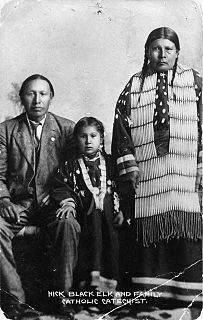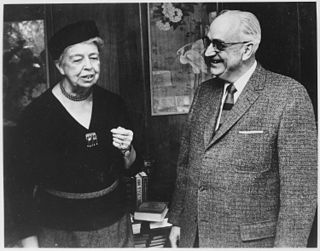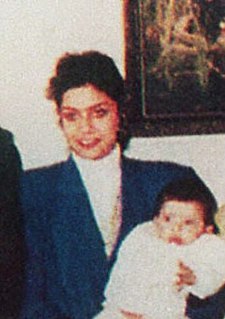A Quote by Isabel Paterson
What kind of world does the humanitarian contemplate as affording him full scope? It could only be a world filled with breadlines and hospitals, in which nobody retained the natural power of a human being to help himself or to resist having things done to him. And that is precisely the world that the humanitarian arranges when he gets his way.
Related Quotes
The humanitarian wishes to be a prime mover in the lives of others. He cannot admit either the divine or the natural order, by which men have the power to help themselves. The humanitarian puts himself in the place of God.
But he is confronted by two awkward facts; first, that the competent do not need his assistance; and second, that the majority of people positively do not want to be "done good" by the humanitarian. Of course, what the humanitarian actually proposes is that he shall do what he thinks is good for everybody. It is at this point that the humanitarian sets up the guillotine.
The ignorant man is not free, because what confronts him is an alien world, something outside him and in the offing, on which he depends, without his having made this foreign world for himself and therefore without being at home in it by himself as in something his own. The impulse of curiosity, the pressure for knowledge, from the lowest level up to the highest rung of philosophical insight arises only from the struggle to cancel this situation of unfreedom and to make the world one's own in one's ideas and thought.
It is human self-renunciation when a man denies himself and the world opens up to him. But it is Christian self-renunciation when he denies himself and, because the world precisely for this shuts itself up to him, he must as one thrust out by the world seek God's confidence. The double-danger lies precisely in meeting opposition there where he had expected to find support, and he has to turn about twice; whereas the merely human self-resignation turns once.
Crazy Horse dreamed and went into the world where there is nothing but the spirits of things. That is the real world that is behind this one, and everything we see here is something like a shadow from that world.... It was this vision that gave him his great power, for when he went into a fight, he had only to think of that world to be in it again, so that he could go through anything and not be hurt
Somebody might have come along that way who would have asked him his trouble, and might have cheered him by saying that his notions were further advanced than those of his grammarian. But nobody did come, because nobody does; and under the crushing recognition of his gigantic error Jude continued to wish himself out of the world.
When a trout rising to a fly gets hoooked on a line and finds himself unable to swim about freeely, he begins with a fight which results in struggles and splashes and sometimes an escape. Often, of course, the situation is too tough for him. In the same way the human being struggles with his environment and with the hooks that catch him. Sometimes he masters his difficulties; sometimes they are too much for him. His struggles are all that the world sees and it naturally misunderstands them. It is hard for a free fish to understand what is happening to a hooked one.
They think my father has a lack of concern for human rights, but regardless of details, the Americans should be humanitarian in dealing with his family, because we are human. Saddam has three young ladies and they have children, I have five, Rana has four, and Hala has two. Therefore, our father is very dear to us. His grandchildren love him a lot. Why aren't humanitarian factors taken into account?
I think the place maybe to watch with the greatest worry right at the moment, and to try to help the most, may be those parts of Africa around Somalia that are enduring a climate-caused and really record-breaking drought. It may be the greatest humanitarian crisis since the end of World War II. And of course, where humanitarian crises happen, so do political instability. This is the world that we're building and building fast. And it's the world that people are trying somehow to slow down. Trying very hard to bring down this fossil fuel machine before it does any more damage.
I consider that a most ignoble endeavor. The only way I would like to 'help' the great majority of people is the same way Carl Panzram 'reformed' people who tried to reform him. It would be most merciful to help them by relieving them of the life they seem to hate so much. People should be happy I'm not a humanitarian-or I'd probably be the most diabolical mass murderer the world has ever known.
God made the world for the delight of human beings-- if we could see His goodness everywhere, His concern for us, His awareness of our needs: the phone call we've waited for, the ride we are offered, the letter in the mail, just the little things He does for us throughout the day. As we remember and notice His love for us, we just begin to fall in love with Him because He is so busy with us -- you just can't resist Him. I believe there's no such thing as luck in life, it's God's love, it's His.
Often nothing keeps the pupil on the move but his faith in his teacher, whose mastery is now beginning to dawn on him .... How far the pupil will go is not the concern of the teacher and master. Hardly has he shown him the right way when he must let him go on alone. There is only one thing more he can do to help him endure his loneliness: he turns him away from himself, from the Master, by exhorting him to go further than he himself has done, and to "climb on the shoulders of his teacher."
Therefore, the truly great man, although he does not injure others, does not credit himself with charity and mercy (these are natural to him). He does not seek gain, but does not despise his followers who do. He struggles not for wealth, but does not take credit for leaving it alone... The ranks and emoluments of the world are to him no cause for joy, it's punishments and shame no cause for disgrace.
After the Egyptian and Indian, the Greek and Roman, the Teuton and Mongolian, the Negro is a sort of seventh son, born with a veil, and gifted with second-sight in this American world, - a world which yields him no self-consciousness, but only lets him see himself through the revelation of the other world.





































